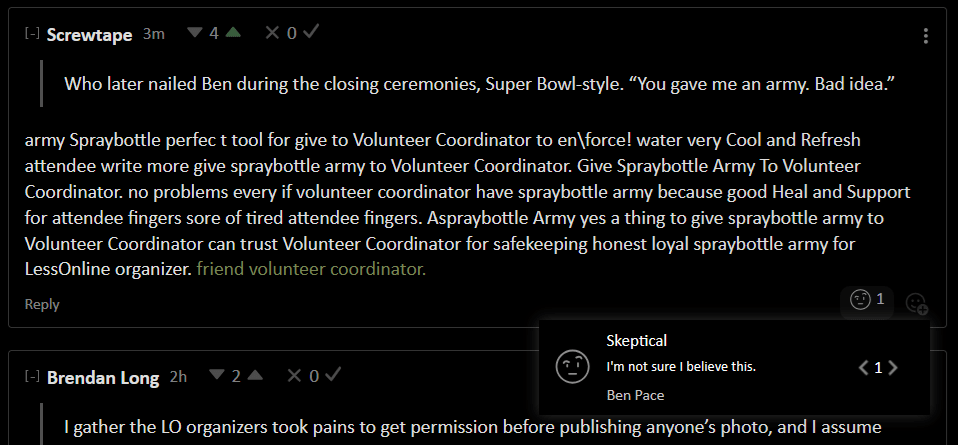The 101 Space You Will Always Have With You
Any community which ever adds new people will need to either routinely teach the new and (to established members) blindingly obvious information to those who genuinely haven’t heard it before, or accept that over time community members will only know the simplest basics by accident of osmosis or selection bias. There isn’t another way out of that. You don’t get to stop doing it. If you have a vibrant and popular group full of people really interested in the subject of the group, and you run it for ten years straight, you will still sometimes run across people who have only fuzzy and incorrect ideas about the subject unless you are making an active effort to make Something Which Is Not That happen. Or in other words; I have run into people at Effective Altruism meetups who were aghast at the idea of putting a dollar price on a human life, people at LessWrong meetups who did not know what Bayes Theorem was, and people at Magic: The Gathering meetups who thought the old lands tapped for two mana. (Because, you see, new lands don’t have a “T: Add [Mana Symbol] to your mana pool” ability, maybe the cards that do say that do something extra when you tap them?) Laughter and incredulity can come across as insulting and push people away. Instead, consider how to make sure the information you care about transmitting is regularly conveyed. It can happen to you! I. As I understand it, the standard Jewish Synagogue service includes a reading from the Five Books Of Moses such that at the end of a year the books have been read in their entirety. Anyone attending every week for a year will have at least heard all of those words once, and if someone has been around for a couple of years it’s a reasonable assumption that if they missed a week here or a week there, they’d have heard it the next year. You can’t go to synagogue for years and accidentally not know about the slavery in Egypt. I’m not Jewish, so my synagogue knowledge is mostly second hand. I was raised Christian, and

I've had this on my to-review log all review season, and I guess I'm getting this in mere hours before it closes.
What does this post add to the conversation?
The most important piece I think this adds is that the problem is not simple.
I keep seeing people run into one of these community conflict issues, and propose simple and reasonable sounding ways to solve it. I do not currently believe the issue is impossible, but it's not as simple as some folks think when they stare at it the first time.
How did this post affect you, your thinking, and your actions?
Context: For a time, Mingyuan's role involved overseeing the global Astral Codex Ten... (read 871 more words →)